FISU Student Ambassador Julianna Király gives readers a look into the discussions underway to advance equality for all through sport
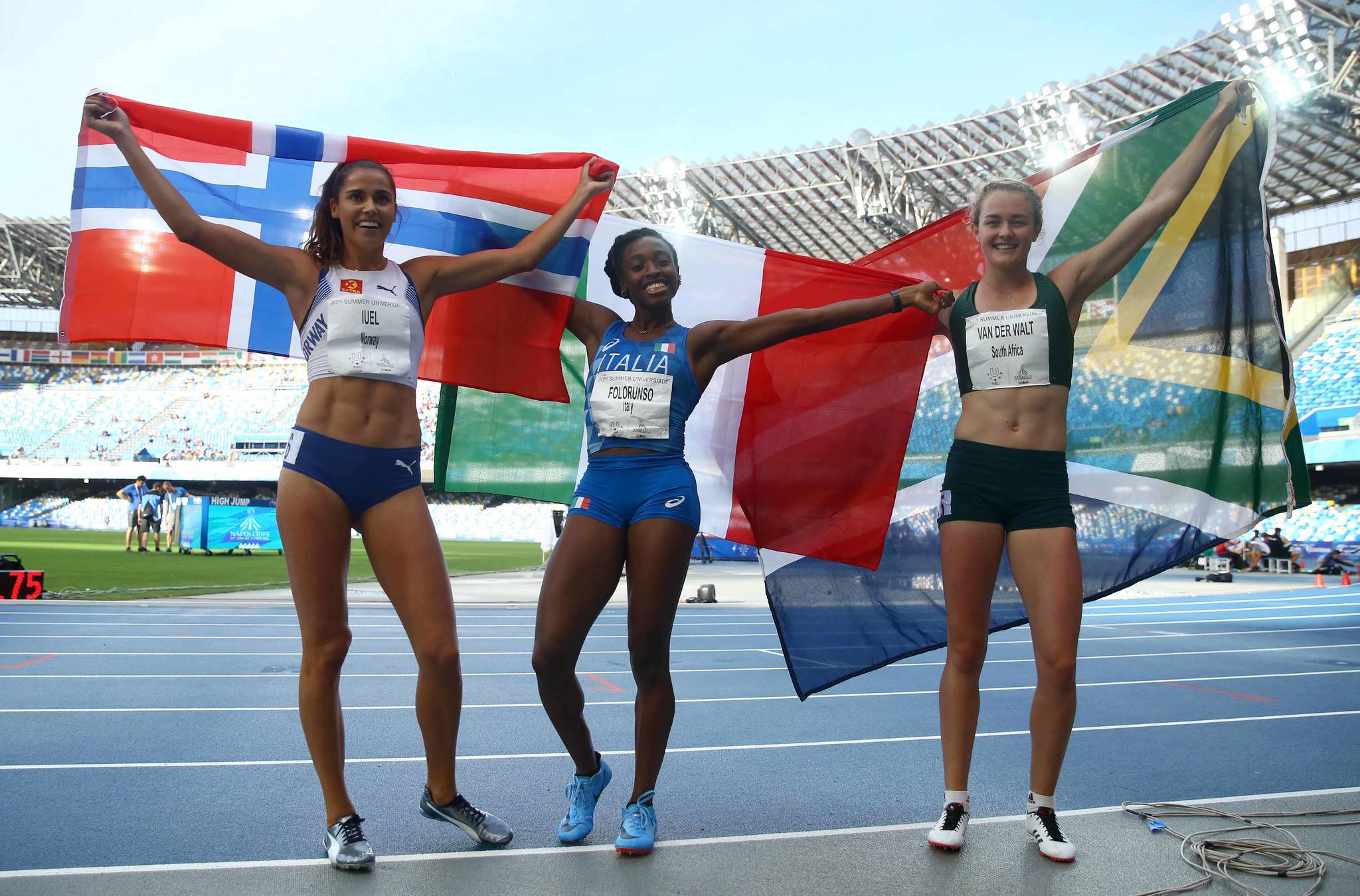
NAPOLI, 11 July – It was nice to see how many people attended the FISU gender equality round table at the Athletes’ village in Naples. This topic is not the task for one committee, but the task of all – championing equality in sports affects all levels, from the bottom to the top. From athletes to coaches to officials, the higher the position the lower one finds female representation.
The first step is to speak about it.
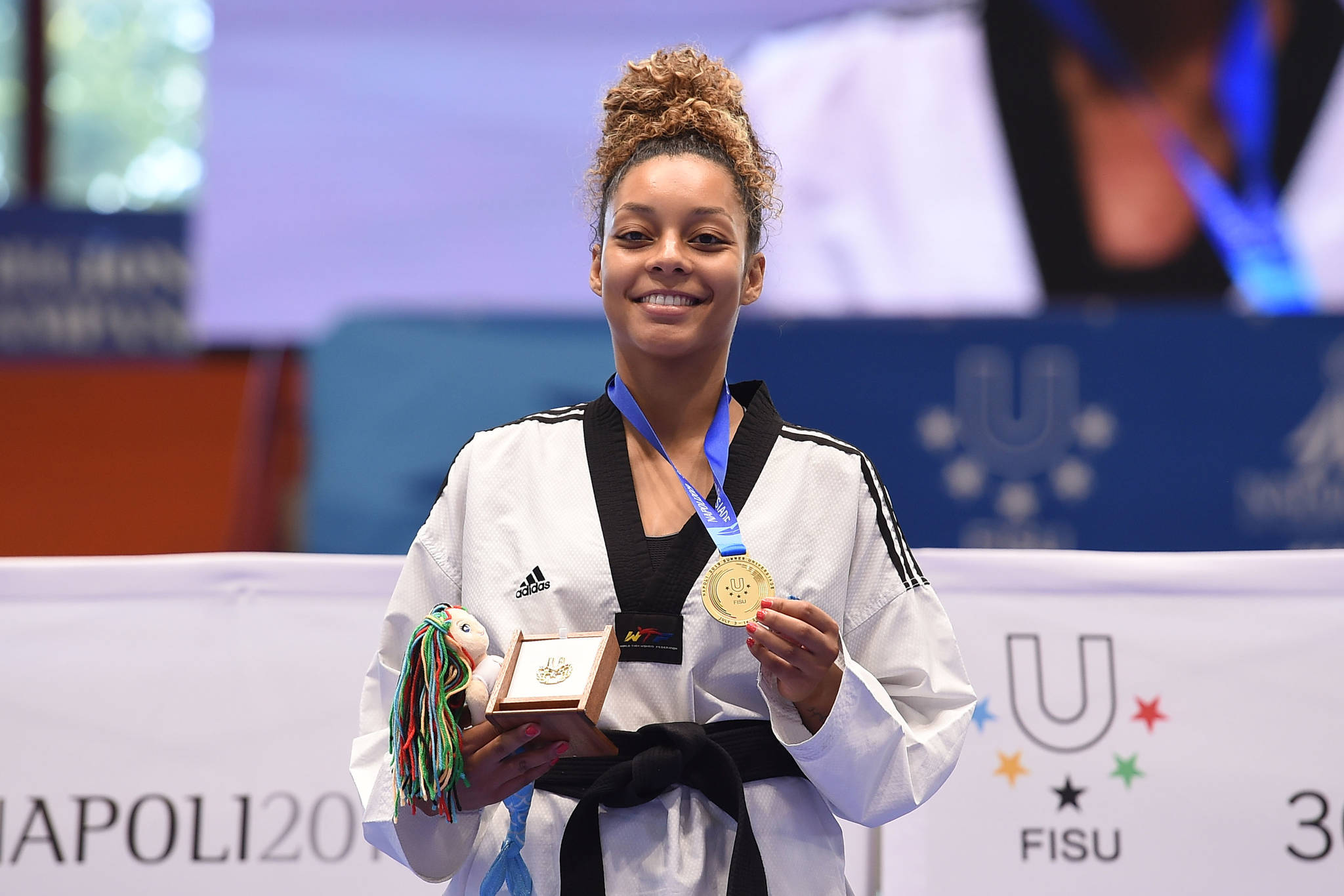
FISU First-Vice President Leonz Eder noted that there had been a lot of improvement gender equality in sport, but that still, we have a lot of work to do.
The Mayor of Napoli sent a female delegate; she expressed that it means a lot for both Napoli and Italy that so many high-ranked leaders were discussing gender equality in their city. The delegate noted that the importance of the topic was evident by drawing in so many people for discussion.
We have to put it in writing, then to the regulations of the law so that change can happen.
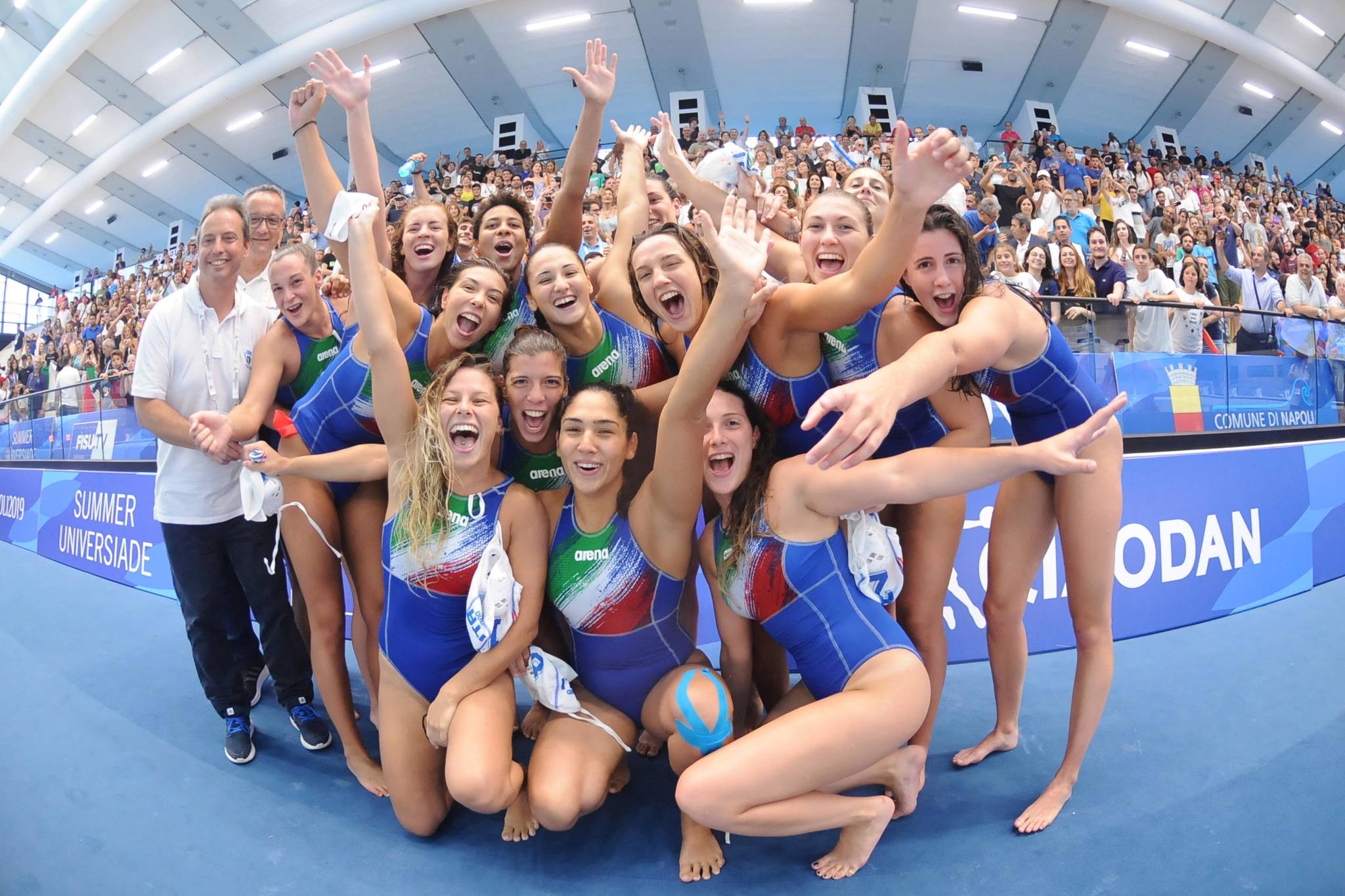
EUSA President Adam Roczek discussed the association’s quota system, one with the expressed mission to putting more female members in higher positions in EUSA. Currently, EUSA has female Executive Committee member. The association plans to increase the numbers in their committees systematically within the next eight years. The details of their program are not public yet as it first needs to be discussed and accepted at the next general assembly.
We also heard about a Canadian system of voting where people could have two votes, one for female candidates and one for the male candidates, which increases the possibility for female representation.
Are females prepared? It is not enough just to put women in position – it would be like putting them directly to fail; we need to prepare them for the job.
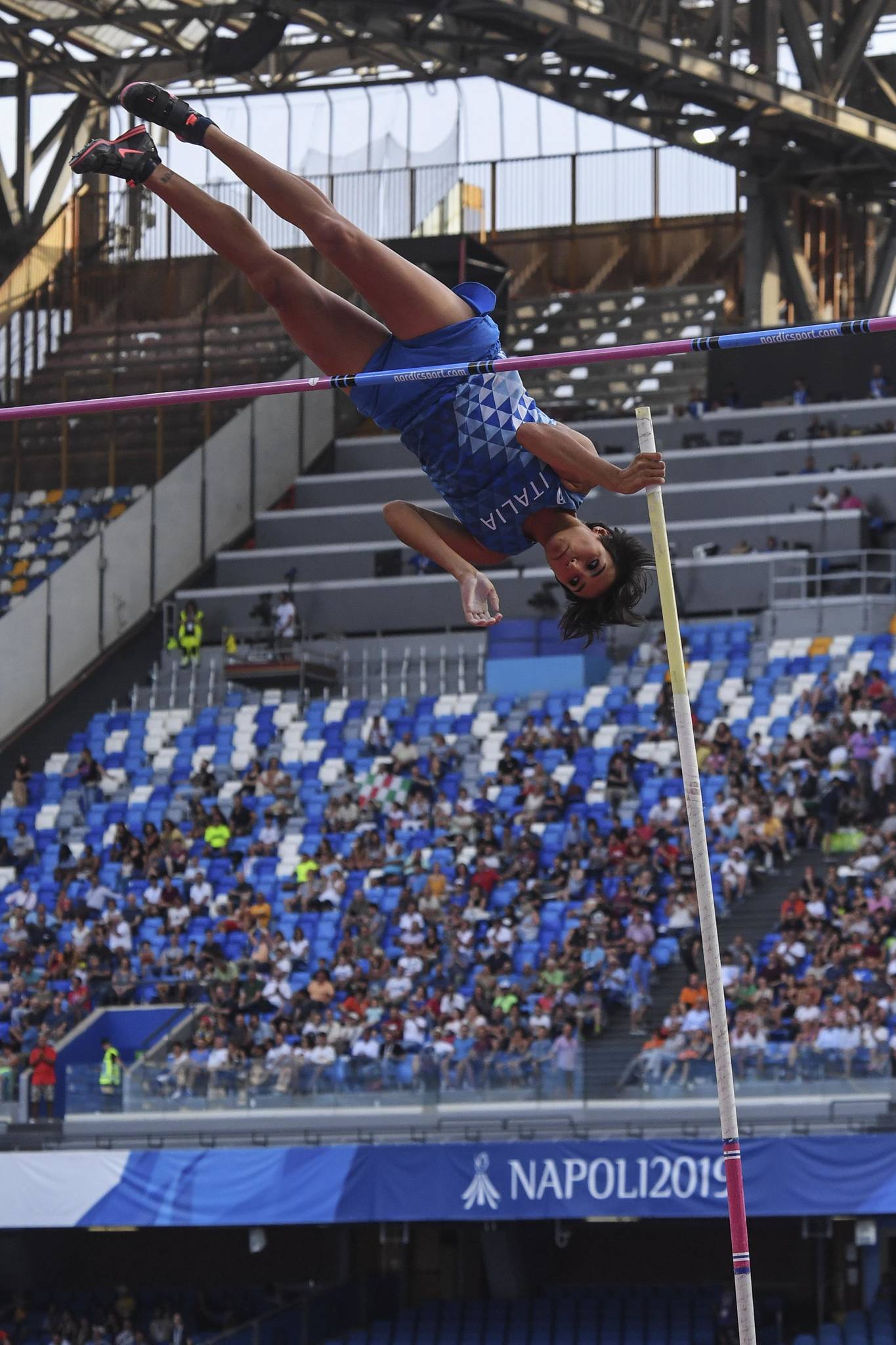
Verena Burk, FISU Senior Executive Committee Membera, mentioned a German mentor program that is helping young women to further grow their development as future leaders. She has participated in this program as a mentor before. It is a good practice that NUSF could implement to prepare their female staff.
An example, a role model is needed to help young women believe in can happen.
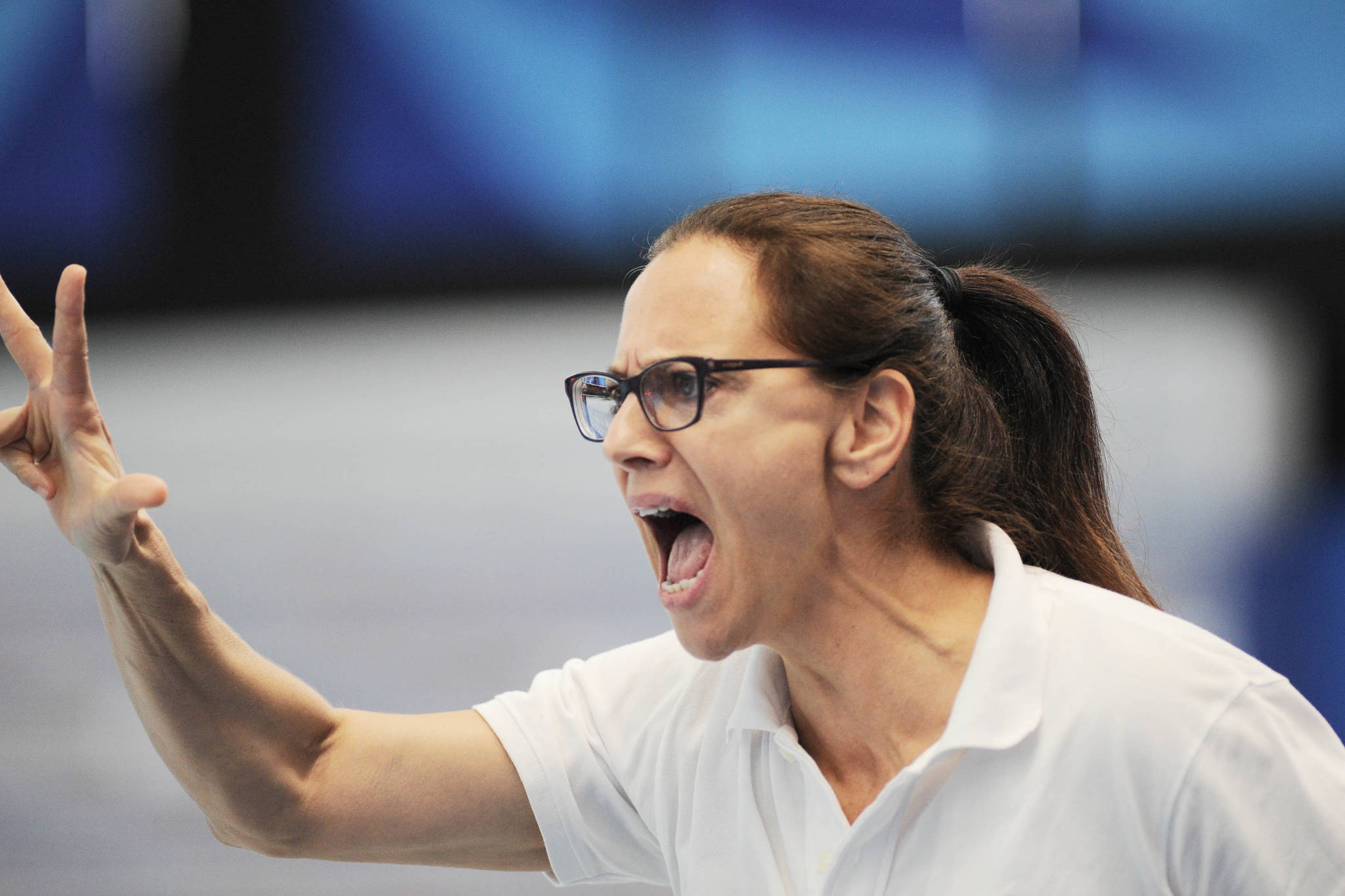
A Mexican female football coach working in Canada said that, “It’s hard to believe that you can be a coach yourself if you never see a female coach.” The takeaway? People need role models so that they believe they can do it.
We have to provide the same salary, the same prize money for the same achievement.
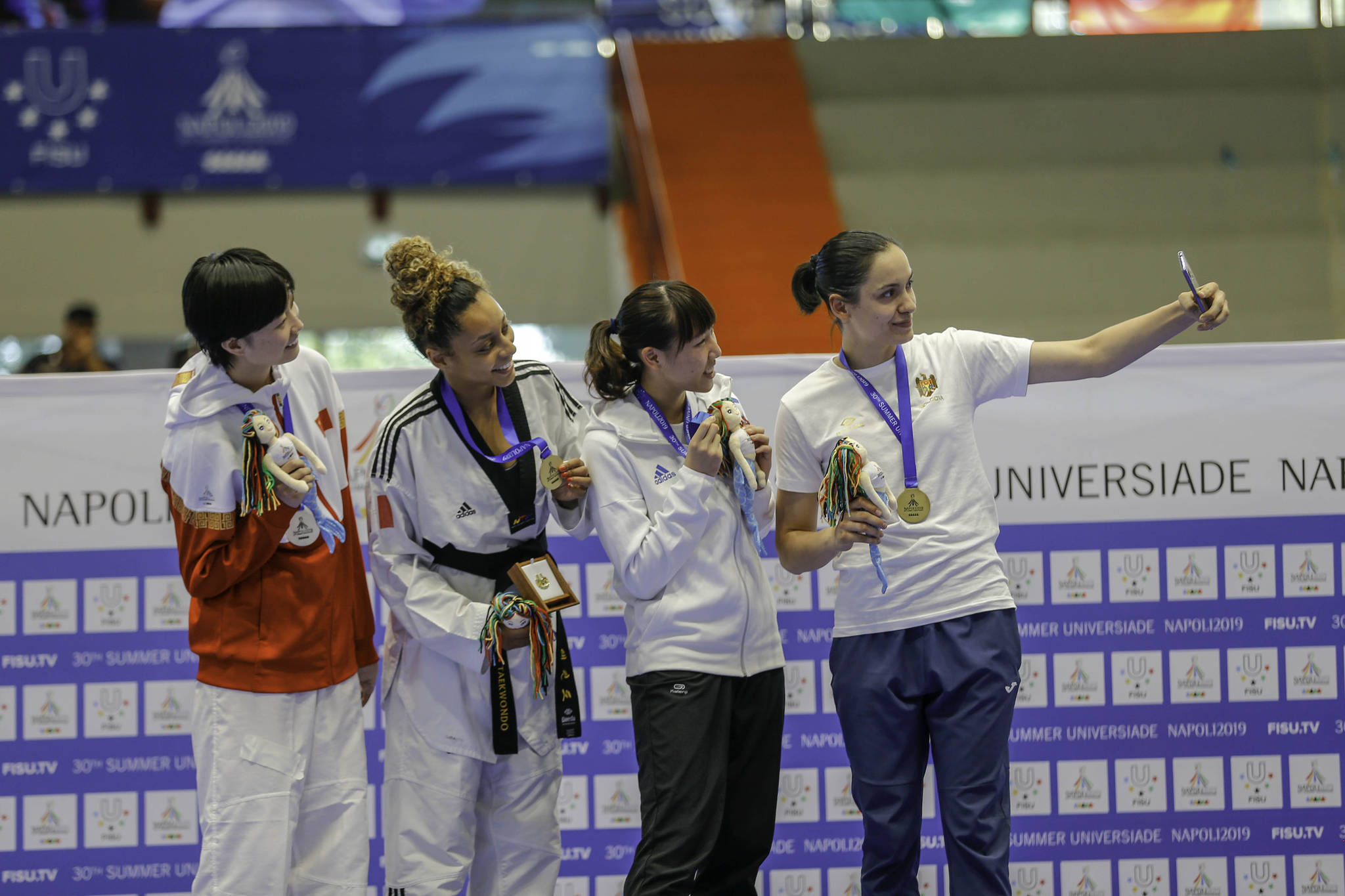
Maria José Rienda Contreras, president of Consejo Superior de Deporte and secretary of State for Sport of Spain said that women “don’t want more, we only want the same.” Contreras is currently working in Spain with the law to provide equal opportunities for women. Once an alpine skier; it took hard work from Contreras to get to the place where she is right now. At the beginning of her career, she did not imagine she would get so far.
One of the participants mentioned an initiative started in the United States by U.S Senator Joe Manchin. To get equal pay, the Senator from West Virginia has taken aim at the 2026 FIFA World Cup: he introduced a bill in Congress that would withhold federal funding for the World Cup men’s event in 2026, which will be held in the United States, until the men’s and women’s national soccer teams receive equal pay.
Hopefully, in the near future, we will notice further improvements. The discussion on the topic will be continued at other events like the FISU Forum next year.
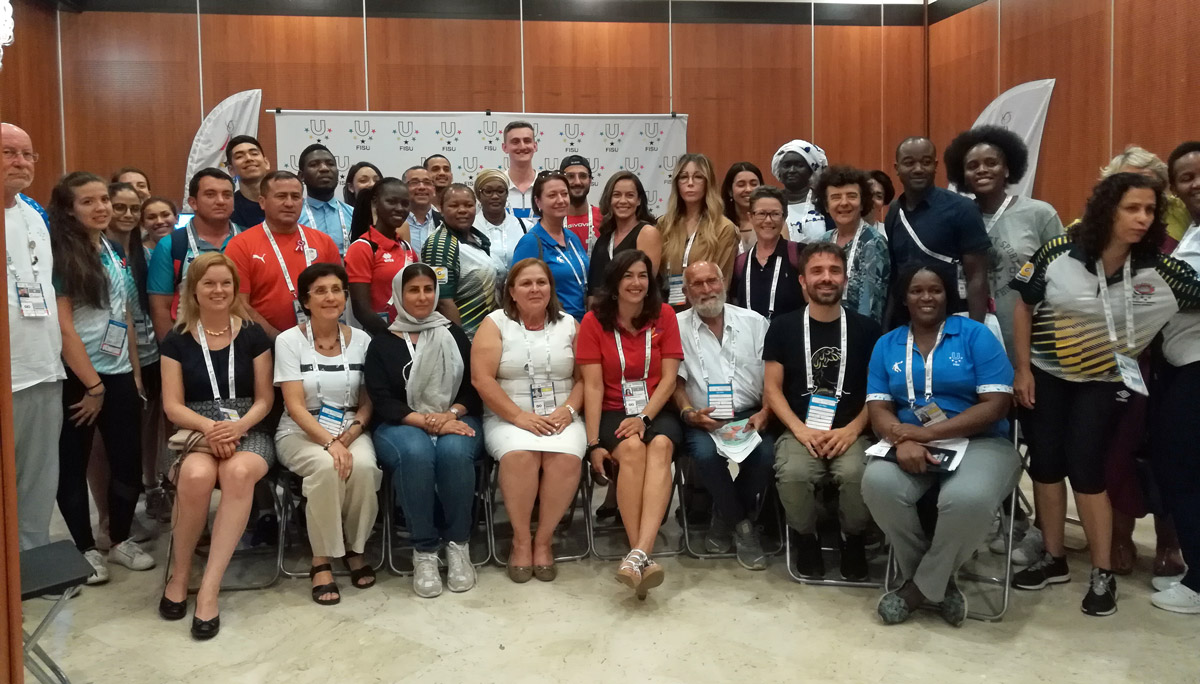 The FISU Gender Equality Roundtable at the 30th Summer Universiade drew in many leaders for the discussion, from both in and outside sporting circles
The FISU Gender Equality Roundtable at the 30th Summer Universiade drew in many leaders for the discussion, from both in and outside sporting circles